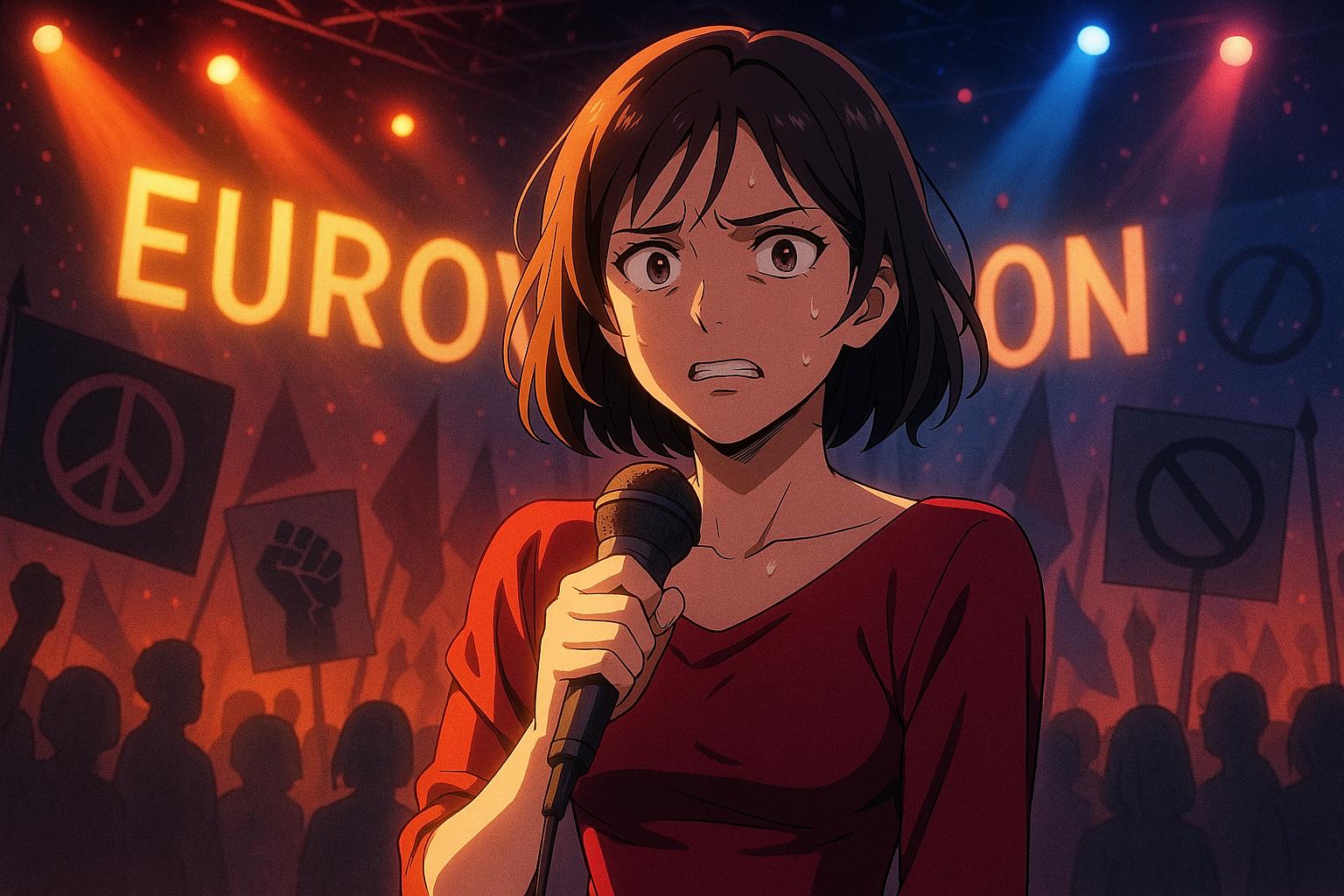Mystery surrounds the abrupt withdrawal of Ncuti Gatwa from the UK’s jury presentation at tonight’s Eurovision results showcase. Just two days prior to the event, the acclaimed actor—best known for his role in Doctor Who—stunned fans with his decision, attributed to “unforeseen circumstances” by the BBC. Gatwa's exit follows a tumultuous week, where protests against Israel's participation in the contest have significantly escalated tensions surrounding the broadcast.
His replacement, singer Sophie Ellis-Bextor, will now deliver the jury scores. This change came shortly after Israel secured a place in the grand final, intensifying the scrutiny over its participation. The 24-year-old Israeli contestant, Yuval Raphael, is notably a survivor of the Hamas terror attack on October 7, 2023, and is set to perform her song "New Day Will Rise." However, her presence has not been without controversy; during rehearsals, she faced vocal opposition from protestors, who disrupted her performance by waving Palestinian flags and blowing whistles.
Amid this backdrop, Eurovision's organisers have heightened security measures for the event in Basel, Switzerland. Authorities are enforcing strict regulations, including bans on large bags and enhanced screening processes at the venue, St. Jakobshalle. This reflects a broader concern about safety and the potential for further disturbances, as more than 300,000 fans are expected to gather in the city, alongside ongoing demonstrations against the show’s political implications.
Past weeks have seen a growing call for reconsideration of Israel's participation in the contest. Over 70 former Eurovision participants, including the UK's 2023 entry, Mae Muller, have penned an open letter advocating for a dialogue regarding Israel's role in future competitions. The sentiment is echoed by the current climate in Europe, where public demonstrations have increasingly connected the arts with global political struggles. In a recent statement, last year's winner, Nemo, remarked, “Israel’s actions are fundamentally at odds with the values Eurovision claims to uphold—peace, unity and respect for human rights.”
The situation surrounding Eurovision is complicated further by protests during the competition itself. Reports indicate that audience members have been removed for displaying support for Palestine, including instances where Israeli representatives faced booing and hostile gestures. This hostility raised alarms, leading Israeli officials to report alleged threats towards their delegation during the event's parade.
While Sweden currently leads the betting odds to win the contest, the atmosphere is decidedly fraught, with public opinion sharply divided. As Eurovision shifts into its final stages, the implications of its political entanglements are becoming more pronounced, drawing intense scrutiny from both fans and critics alike. This contentious backdrop highlights the intersection of entertainment and geopolitics, illustrating how art can sometimes become a battleground for larger socio-political issues.
The Eurovision Song Contest will be broadcast live on BBC One tonight from 8 PM, showcasing not only musical talent but also the complexities of cultural representation in a divided world.
Reference Map
- Paragraphs 1, 2, 3
- Paragraph 3
- Paragraphs 4, 5
- Paragraph 5
- Paragraph 6
- Paragraph 6
- Paragraph 6
Source: Noah Wire Services
